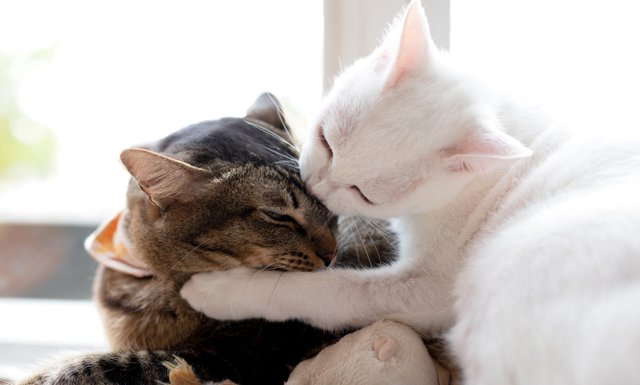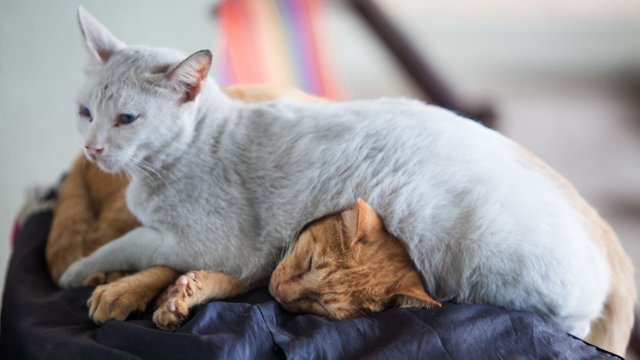
Many people choose to live with a cat for companionship. As a social species, companionship is something we often crave. But this cannot necessarily be said of our feline friends. Domestic cats evolved from a largely solitary species, defending their territory from other cats.
Although modern-day cats can live together in friendly groups (when there are enough resources to go around), bonds generally only develop between cats who are related or grow up together. It is natural for cats to feel threatened by unfamiliar cats. Owners should consider whether adding another cat to their home is really in their cat’s best interest, especially if they are generally more of a timid cat.
If you’re set on adding another cat to your home, plan the introduction carefully.
Prepare for your new cat before you bring them home. Set aside a room for them, making sure they have at least two comfortable sleeping areas, a water bowl, a feeding area, scratching post and toys. Provide at least one litter tray (preferably two), well away from the food, water and sleeping places.
When the day comes to bring your new cat home, take them straight to “their” room. Allow them to come out of their carrier in their own time. They will be frightened if you try to pull them out. No matter how excited you are to interact with your new companion, you might need to leave the room, allowing them to explore by themselves.
Your new cat needs to stay in their room for several days. This will help them settle down and allows you to introduce them to your existing cat via scent.
Scent, especially facial pheromones, helps cats identify other cats that they are bonded with and is important for maintaining bonds between cats. Swap cloths that each cat has slept on, and toys. Place these somewhere the cats will come across them in their own rooms, but away from beds, bowls and litter trays.
Neither cat should show signs of avoidance or aggression towards the cloths before you progress. Then you can directly swap scent between the cats. Stroke one cat, especially around the cheeks and area in front of the ears, and then go directly to the other cat and stroke them. Repeat in the other direction.
This will transfer the cats’ scent profiles and facial pheromones, as if they were rubbing on each other directly. Look for relaxed rubbing or nudging in return.
Longer term
Once both cats are relaxed about being stroked with your other cat’s scent on your hands, they can finally see each other and your new cat can explore the rest of your home. You can buy a plug-in diffuser that releases copies of a feline facial pheromone, which may help with the initial introductions as it has been found to reduce cat-to-cat aggression within households.

You've got a free upvote from witness fuli.
Peace & Love!
Downvoting a post can decrease pending rewards and make it less visible. Common reasons:
Submit